Epiphora mineti
Epiphora mineti
Darge, 1994
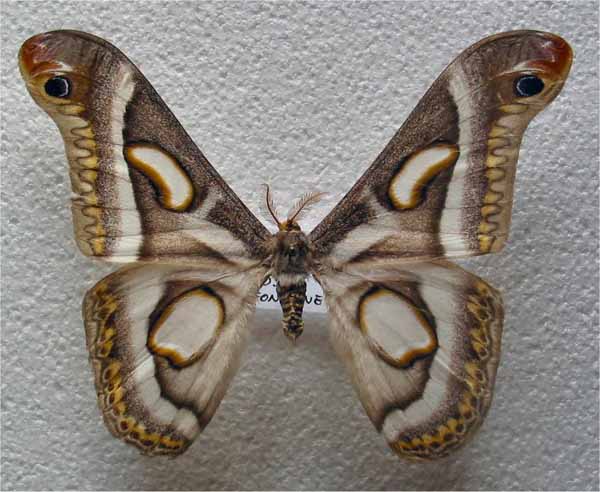
Epiphora mineti,
Adamaoua in Cameroon, courtesy of Teemu Klemetti.
This site has been created by
Bill Oehlke at oehlkew@islandtelecom.com
Comments, suggestions and/or additional information are welcomed by Bill.
| TAXONOMY:
Superfamily: Bombycoidea, Latreille, 1802
Family: Saturniidae, Boisduval, [1837] 1834
Subfamily: Saturniinae, Boisduval, [1837] 1834
Tribe: Attacini, Blanchard, 1840
Genus: Epiphora, Wallengren, 1860
|
MIDI MUSIC
Wind Beneath My Wings
copyright C. Odenkirk
MIDI CITY
ON.OFF
<bgsound src="wings.mid" LOOP=FOREVER>
|
DISTRIBUTION:
The Epiphora mineti moth
(wingspan: approximately 120-133mm) is one of
the few Attacini in
Africa. This species flies in West and
Central Africa and is readily taken in
Cameroon: Sud Province: Elone; Est Province: Yokadouma.
According to Bouyer's Catalogue, 1999, this is the
same moth as Epiphora styrax. Mineti was described
first and would have precedence, if the two moths are indeed the same.
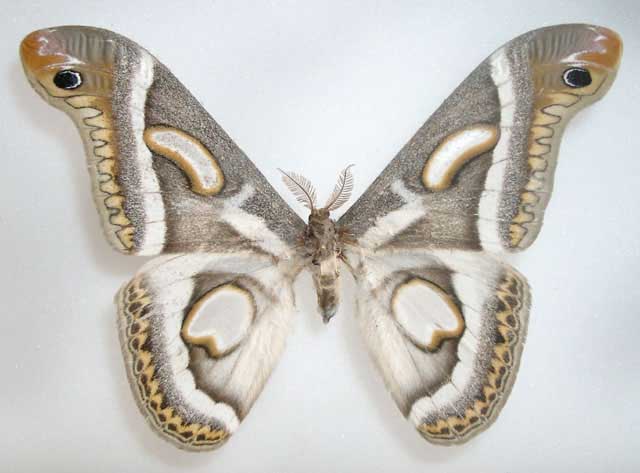
Epiphora mineti male, Elone (Sud Province), Cameroon, 800m
July 2006, wingspan 120mm, courtesy of Sebastian Brandner,
confirmed by Thierry Bouyer.
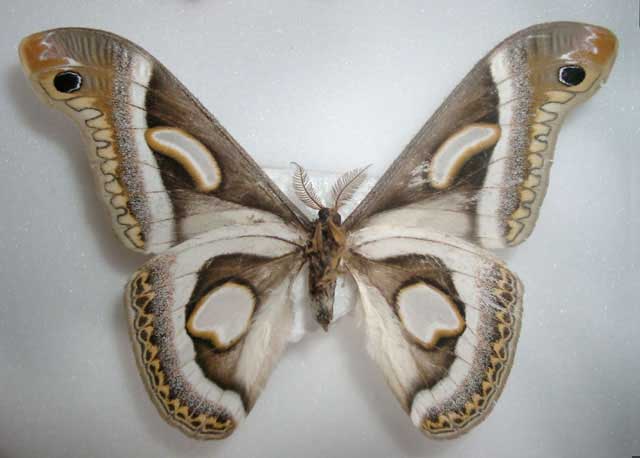
Epiphora mineti male (verso), Elone (Sud Province), Cameroon, 800m
July 2006, wingspan 120mm, courtesy of Sebastian Brandner,
confirmed by Thierry Bouyer.
FLIGHT TIMES AND PREFERRED FOOD PLANTS:
Epiphora
mineti fly in July and probably other months in Camerooon.
Larval host are unknown.
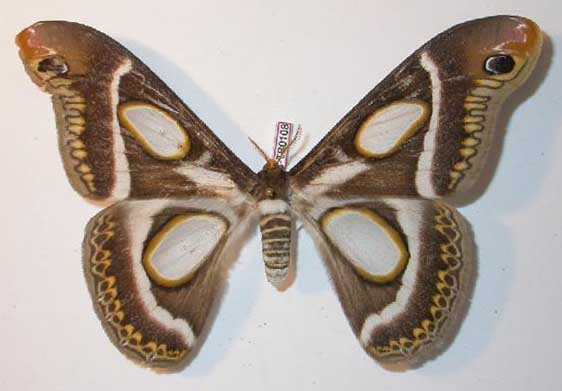
Epiphora mineti female, sorry, image not available.
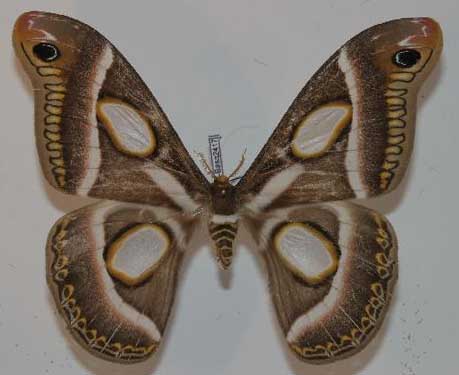
Epiphora mineti female, sorry, image not available.
ECLOSION, SCENTING AND MATING:
Epiphora mineti females extend a scent gland from the
posterior tip of the abdomen to call in the night-flying males.The pair remains
coupled until the following evening.
The wings of the female are
more rounded than those of the male.
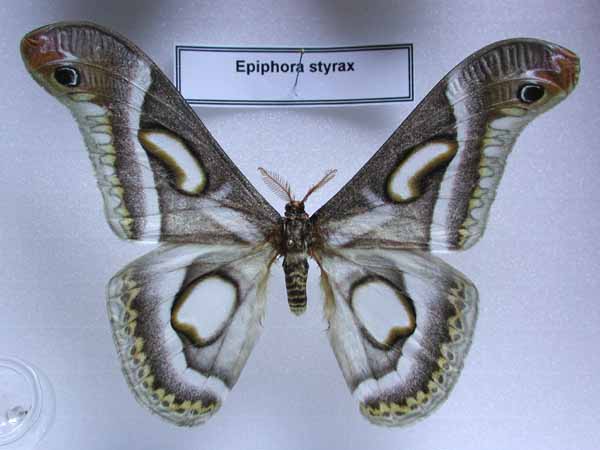
Epiphora mineti,
Cameroon, courtesy of Eric van Schayck.
EGGS, LARVAE, COCOONS, AND PUPAE:
The cocoon is double walled and resembles the cocoon of the
Hyalphora.
Larval Food Plants
It is hoped that this alphabetical listing followed by the common
name of the foodplant will prove useful. The list is not exhaustive.
Experimenting with closely related foodplants is worthwhile.
Use your browser "Back" button to return to the previous page.





